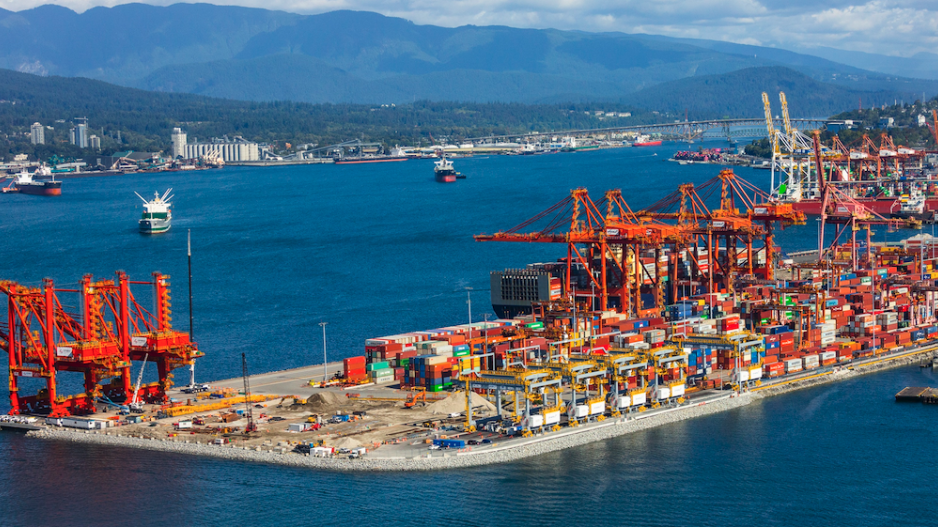One down and one to go in the Port of Vancouver’s ambitious game plan to expand container cargo handling capacity at sa���ʴ�ý’s main Asia-Pacific Gateway entry point.
The Vancouver Fraser Port Authority (VFPA) officially announced completion of its $350 million Centerm expansion project Fepuary 21 following four years of construction.
But it is still awaiting a final federal cabinet decision on its more ambitious and at Roberts Bank. The decision on Terminal 2, which has taken more than a decade to reach cabinet, is expected in the next few weeks.
If approved the expansion would add 2.4 million 20-foot-equivalent units (TEUs) to the port’s annual container handling capacity. That would increase Vancouver’s overall capacity by more than 30 per cent.
Centerm’s expansion adds 15 per cent to the terminal’s overall footprint but will allow it to handle 60 per cent more containers per year: 1.5 million TEUs compared with the current 900,000.
In addition to expanding the terminal’s footprint to the west and east, the project reconfigured and expanded Centerm’s container yard, added new truck gates, expanded the terminal’s intermodal yard and added a new operations facility.
It also reduces the terminal’s environmental footprint by adding capacity for container ships to connect to electrical shore power and converting some of Centerm’s diesel yard cranes to electric.
The port completed the Centerm expansion in partnership with Dubai-based DP World, which operates Centerm in Vancouver and the Fairview container terminal in Prince Rupert through its DP World (sa���ʴ�ý) Inc. subsidiary.
It is part of the port’s overall $454 million Centerm expansion and South Shore Access project, funding for which is shared by the VFPA and DP World. The federal government also contributed $28.5 million.
According to the VFPA, additional container handling capacity is needed in Vancouver because sa���ʴ�ý’s West Coast container terminals will reach their handling capacity by the mid- to late-2020s.
However, the extent to which transpacific trade and container traffic will increase over the next decade is open to debate.
following an 18-month pandemic spike that overwhelmed ports up and down North America’s West Coast.
Recent numbers from container shipping analyst John McCown show January’s inbound cargo volume to the 10 largest U.S. ports dropping 17.9 per cent compared with the same month in 2022. The decrease marks the sixth straight month of double-digit declines for U.S. ports. West Coast North America ports led January’s downturn with a 23.5 per cent decrease.
The weaker West Coast cargo numbers continue a longer-term trend of container traffic migrating to Gulf and East Coast ports.
McCown noted that January was the 20th straight month in which the percentage change in volume at those ports outperformed their West Coast counterparts.
His January report pointed out that West Coast ports have recorded cargo declines in 13 of the last 17 months.
twitter.com/timothyrenshaw



